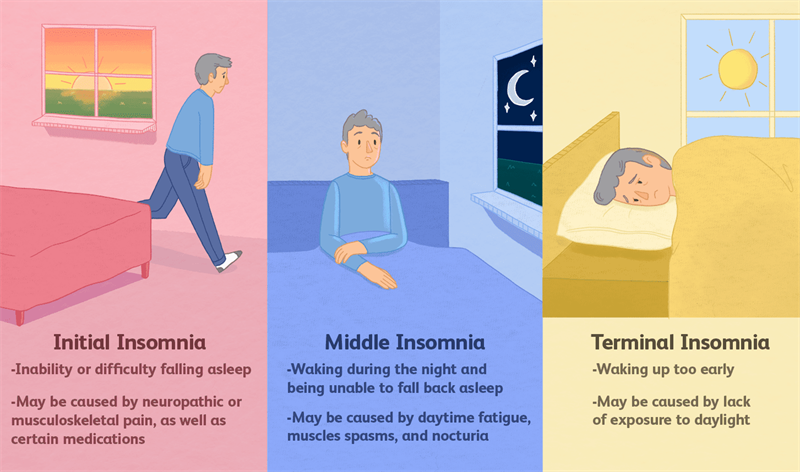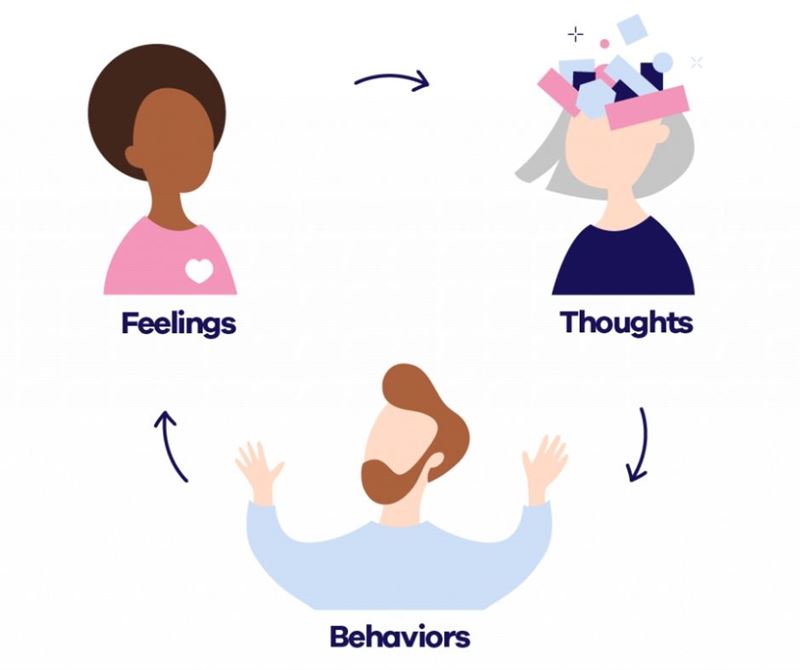6 Ways To Tackle Insomnia

What Is Insomnia?
Struggling to sleep at night? – Yes, that’s Insomnia.
If you are facing repetitive difficulty falling asleep, staying asleep, or both, then most probably you are suffering from a common sleep disorder called Insomnia. Since the duration of sleep differs from person to person, so it depends on the quality of your sleep and how do you feel after waking up and not on how fast you sleep or how many hours you sleep.
Sleep deprivation can be either acute (short term) that can last up to a few days or weeks or chronic (ongoing or long term) that can go on for months. In both cases, it can cause many other issues such as fatigue, lack of concentration, daytime sleepiness, headache, irritating behavior, poor memory and a lot more. No doubt these effects can lead to some dangerous consequences in our day to day professional, social and personal life.
Major Causes Of Insomnia
The number of people suffering from Insomnia has increased drastically over the years. Millions of people are suffering from it today. The American Academy of Sleep Medicine declares an Insomnia Awareness Day every year since 2014, this year it was organized on March 11, 2019.

First, let’s take a look at some of the major causes of this disorder-
- Stressful life events.
- Irregular sleeping habits.
- Changing travel and work schedule that disrupts circadian rhythm.
- Overconsumption of stimulants like caffeine, nicotine, and alcohol.
- Medical illnesses like diabetes, asthma, chronic pain, cancer, heart diseases, and thyroid.
- Medications for an illness that is the prescribed drugs that contain stimulants that interfere with sleep.
- Mental health disorders like anxiety and post-traumatic stress, depression, and psychotic disorders.
- Hormones shifts during menstruation.
- Disturbances in the surrounding environment.
- Pregnancy
Also Read: Sleepless Night ? Foods Can Help To Your Insomnia
6 Ways To Tackle Insomnia
Well, with the increase in the number of people suffering from Insomnia, many solutions to treat it have also evolved. Treating Insomnia can although, be a slow process because it requires improving sleep routine and practicing habits that will lead to a good night’s sleep, but it is possible. So let’s discuss various ways of tackling Insomnia one by one.
1. Basic Lifestyle Changes
The first thing that even doctors will recommend will be changing a few daily habits. Normally people underestimate how making small changes to their daily habits can be beneficial, these habits are hard to change but gradually over time the results are more effective than the thought of, like –

- Maintaining a proper sleep schedule, regardless of holidays.
- Creating an environment that is calm, cool and dark.
- Turning off electronics and keeping them away from the body.
- Pick a comfortable bedding and mattress.
- Limited nap during the day.
- Not eating a heavy meal just before bed.
- Listening to soft music before sleeping.
- Taking a warm bath before going to bed.
- Limiting the use of caffeine, alcohol, and nicotine.
2. Natural Remedies
Besides correcting your routines and habits there are certain herbal options instead of conventional sleep medicines that can help you to get a good sleep. These may not act as a substitute but surely will increase your physical and mental well-being as add on. (Note – These remedies are considered safe but you should confirm with your doctor before taking any supplements or herbal remedies). Some of these remedies are
(a) Melatonin
This is a hormone released by the pineal gland in our body, it regulates our sleep-wake cycle. It can be found in tart cherries, supplements rich in melatonin can be taken for a short term effect to improve sleep quality. The lowest dose is suggested that is 1 mg to 5 mg an hour before sleep, but consulting the doctor before taking it is recommended.
(b) Chamomile Tea
Tea bags of chamomile tea are readily available in the market; this tea helps induce sleep. It causes a calm effect and has been used as a relaxation remedy for years. It also reduces stress and anxiety. There is no standard dose of chamomile, some people drink 1 to 4 cups daily, a strong dosage does not cause any harm.

Also Read: Tastes & Benefits Of All Tea In India
(c) Lavender Oil:
Taking lavender oil orally is said to be more effective, it reduces stress and improves sleep and mood. Lavender pills are readily available for intake; you can also drink lavender tea or can use it in an oil diffuser.
3. Meditation
Meditation is an ancient practice of attaining stability of mind and body. Slow breathing exercising wherein a person focuses on his breath, body, thoughts, sensations, and feelings is said to be mindful meditation. It reduces stress and improves concentration. 15-20 minutes of meditation each morning can help you relax and can promote good sleep.

You can join meditation classes or groups for proper guidance. Although it is a safe practice, longer use can bring out strong emotions, so it’s better to do it under expert guidance and stop doing it if you feel something unusual like turmoil.
4. Eating Before Sleeping
Our eating habits play a major role in the physical and mental well-being. Consider adding food items like cheese which is rich in tryptophan and helps the body relax, almonds that contains magnesium and calcium which is important for quality sleep, salmon has omega-3 fatty acids and DHA which also improves sleep, cherries, as mentioned earlier, are rich in melatonin, bananas which are rich in sleep-promoting carbohydrates, and low-fat milk that is rich in melatonin.

Items to avoid before going to bed are – coffee and other caffeine-related products, alcohol, spicy and fatty foods. These items can steal your sleep so, it’s better to avoid their intake before sleeping.
5. Yoga And Exercise
Postures in yoga which helps to focus on breathing can be practiced for about 20 minutes daily. It helps reduce stress and improves focus. You can practice simple and slow yoga postures, make sure to stop doing such postures that are causing physical pain. Moderate exercises can regulate blood flow in your body and helps you in remaining physically active. Jogging, aerobics, brisk walking, strength training are some good exercises that indirectly improves your sleep.
Also Read: 5 Important Health Benefits Of Yoga
6. Traditional Treatments
If changing lifestyles or other remedies are not working it is strongly recommended to see a doctor. The doctor will recommend you for cognitive behavioral therapy, for this you need to take the help of a therapist which will analyze your thoughts and behaviors. The treatment is a specific type of counseling wherein techniques to help you relax are taught. The last kind of treatment that is suggested is taking medications prescribed by the doctor. Sleeping pills should be taken occasionally and not for more than 10 consecutive days. It has a lot of side effects too.

In many cases, changing lifestyle can help treat Insomnia, but if the problem persists then it is strongly recommended to consult a doctor. Sleep is important for the body, it helps flush toxins from your brain and helps the body to calm down and rest. Insomnia can cause a lot of problems in the life of a person both directly and indirectly, it must be treated as soon as realized.
“A healthy body and mind is a result of a healthy sleep”
Written By- Shrutika Joshi









